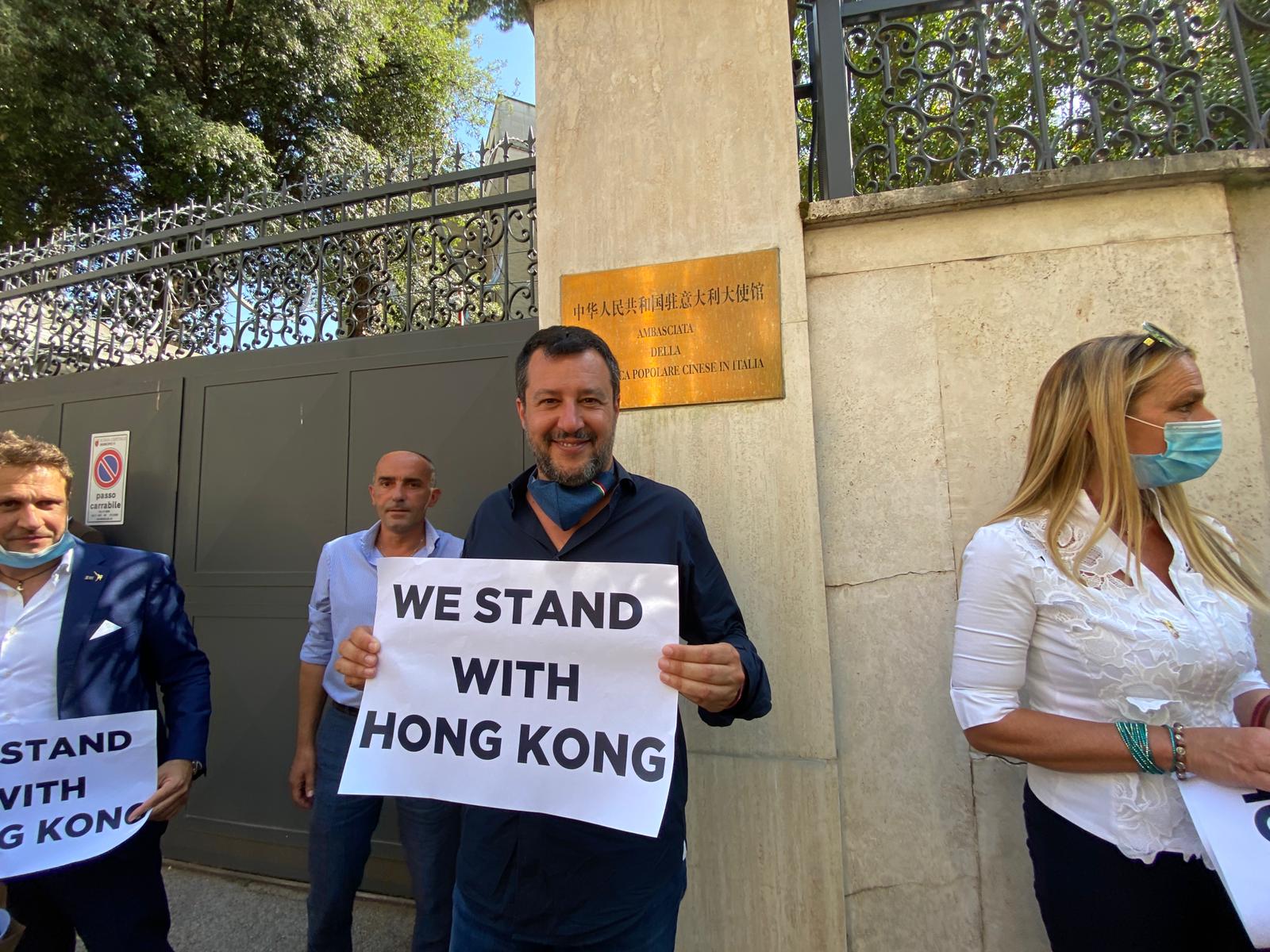The Italian political system is yet to take a clear stance on the events surrounding China’s tightening of its rule over Hong Kong. The two governing parties may have found themselves at odds yet again; the biggest, Five Star Movement, is reluctant to unequivocally condemn Beijing, while the smaller Democratic Party has sided with the European Union in critiquing it. Meanwhile, prime minister Giuseppe Conte has remained silent.
This week, China implemented a new security law in Hong Kong aimed at quelling the pro-democracy movement that has been animating the city for the past year. Ironically enough, the movement itself was sparked by the looming shadow of Beijing’s authoritarian regime over the semi-autonomous city of Hong Kong.
The security law allows pro-Beijing authorities to override Hong Kong’s Basic Law, which is different from China’s own under the “one country, two systems” agreement and grants a degree of democracy far superior than that of mainland China. As soon as the security law passed, the authorities wasted no time and arrested over 360 citizens for participating in a pro-independence march.
As Beijing seeks to strengthen its grip over what it deems to be a Chinese region, Hongkongers have been critical of its interference. The Western world has generally displayed a strong support for Hong Kong, condemning China and considering economic sanctions. Beijing, on the other hand, has stated that Hong Kong is a matter of internal policy and has warned other countries against interfering.
Italy, however, has a somewhat complex relationship with China. Regardless of its traditional alliances, Italy has been strengthening its economic and political ties with China over the last two governments – that is, since 2018 – through projects like the New Silk Road. Recent polling suggests that for the first time ever Italians have warmed up to China more than towards the US and Europe.
Thus, the Italian government has been cautiously avoiding a straightforward condemnation of Beijing; so much so, that the biggest leaders in power have not spoken about the issue. Luigi Di Maio, Five Star’s leader and foreign minister, has not yet commented on the issue; historically, he is one of the main supporters of Sino-Italian relations. Manlio Di Stefano, undersecretary of the foreign ministry and part of the Five Star Movement, has declared that he may condemn the carrying out of the [security] law, but not the law itself.
Five Star’s governing partner, the Democratic Party, appeared more confident in expressing its allegiance to the EU and its stance. The latter, as expressed by the EU’s High Representative for Foreign Affairs and Security Policy Josep Borrell, is deeply critical of Beijing for violating the “one country, two systems” agreement, the Hongkongers’ legal autonomy and their civil rights.
“Italy cannot confront an economic, political, and demographic giant such as China by itself,” Marina Sereni, deputy foreign minister and key figure in the Democratic Party, told Formiche.net. “I fully agree with the words of [EU Commission] president von der Leyen, whom has defined China as a partner but also as a systemic rival with a value system that’s very different from our own.”
Outside the governing majority, however, politicians have been extremely vocal. Yesterday, opposition leader Matteo Salvini organised a flash mob outside the Chinese embassy in Rome, holding a banner that read “Freedom for Hong Kong” in Italian. “I find the government’s silence about the Chinese regime’s violence and lies embarrassing,” he said.
Shortly after the Chinese embassy rejected Mr. Salvini’s “gratuitous” accusations and expressed “strong discontent and displeasure” at his intervention. The note defended the security law as necessary “to punish an extremely small group of criminal elements that gravely threatens national security”, and reinforced Beijing’s official line that Hong Kong is a matter of internal Chinese politics. Furthermore, the embassy’s note made a thinly veiled reference to Mr. Salvini’s own security laws, which he had passed during his time in last year’s government, accusing him of using double standards to weigh Italy and China.
Today Mr. Salvini and Giancarlo Giorgetti, another senior opposition figure, issued a joint rebuttal: “The Chinese embassy shouldn’t dare to compare China to Italy. There are no other parties in Beijing than the Communist Party, the opposition is gagged, and in Hong Kong even kids are arrested with unheard-of violence.” The statement also reminded the embassy that “in Italy the laws are approved by a democratically elected Parliament and not ratified by the National People’s Congress, which is bent under the [Chinese] Communist Party.”
Outside the streets of Rome and inside Parliament, vice-president of the Chamber of Deputies and member of the opposition Fabio Rampelli called on the government to pressure the European Union to “safeguard democracy and freedom in Hong Kong.” “The ratification of the national security law, the suppression of political and civil rights of Hong Kong citizens, the arrest of protesters, all these things demonstrate how China is betraying the most elementary principles that inspired the “one country, two systems” [agreement].” Mr. Rampelli also called on the EU to adopt economic sanctions against China disregarding the eventual economic damage to its member states.








